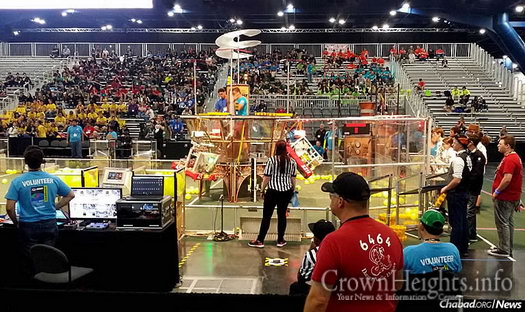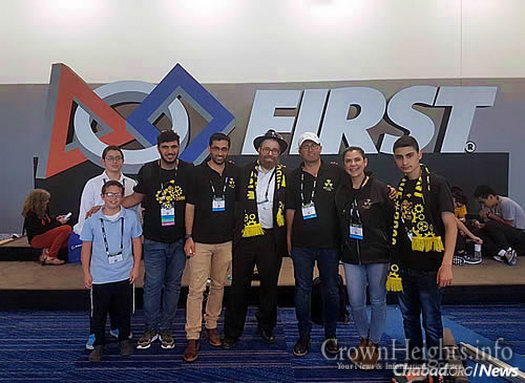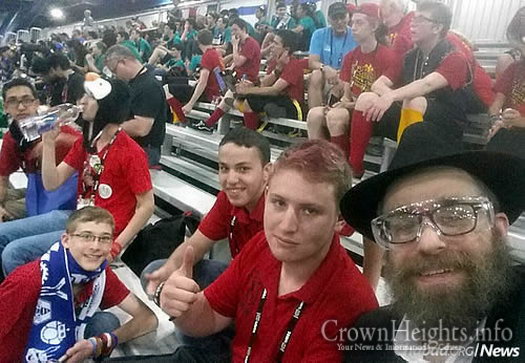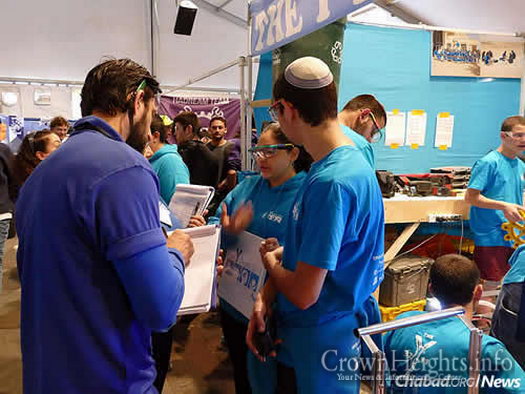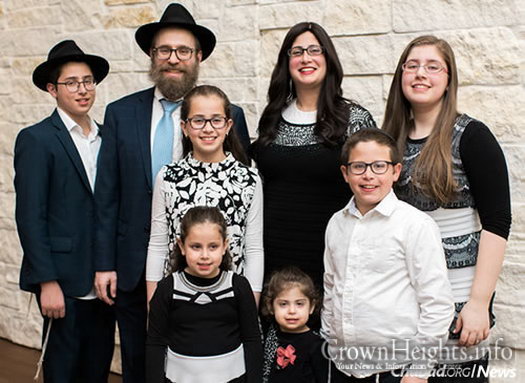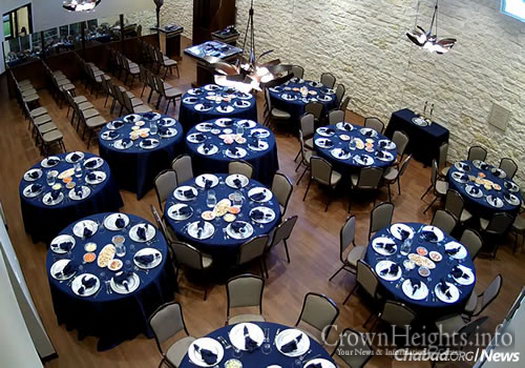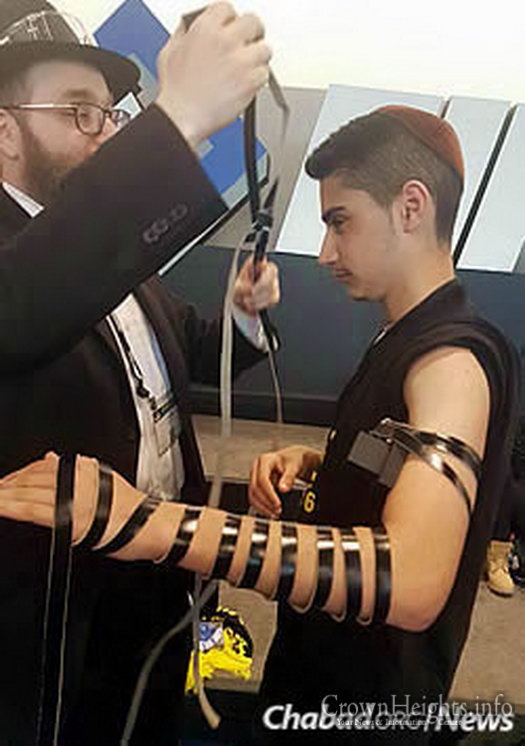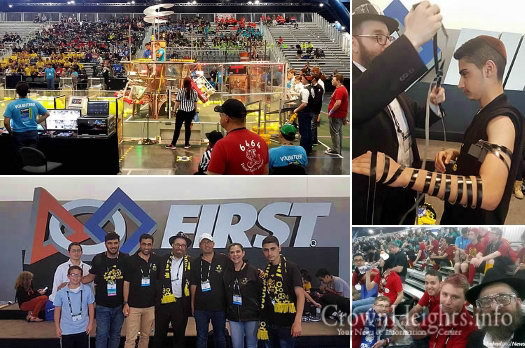
Israeli Teens Feel at Home at U.S. Robotics Competition
Several Israeli high school groups competed in the championship round of the FIRST Robotics Competition, this year held in Houston. While there, students enjoyed kosher meals and the last days of Passover with Chabad of Uptown.
from Chabad.org by Phreddy Wischusen
Robots, once the domain of science fiction, are everywhere. They’ve been designed to replace lost limbs, help people walk, and assist in a myriad of professional and personal tasks. But no matter how many issues technology mitigates, some jobs are still met with some old-fashioned elbow grease.
Take, for instance, the efforts of teens who recently competed at the annual FIRST Robotics Competition, where teams of high-schoolers from across the globe design and build robots whose complexity has grown every year since the program began in 1992.
For the 2017 competition, more than 600 teams accepted the challenge, with winners of the preliminary rounds meeting in Houston from April 21 to April 23 to compete in the championships. Each team’s robot had to accomplish a dazzling display of maneuvers and point-earning exercises, culminating in their robot having to climb a rope (something hard for humans to do, even in the prime of youth).
This year, however, the teams coming from Israel faced an additional challenge not even an army of robots could conquer: The competition was in the middle of the eight-day holiday of Passover.
“When it comes to Pesach here, options are scarce,” Rabbi Chaim Lazaroff, co-director of Chabad of Uptown with his wife, Chanie, tells Chabad.org. “There aren’t many choices. I don’t think many of these teams realized that.”
The Houston metropolitan area has a sizable Jewish population, though spread across one of the largest cities in the United States. According to a 2016 demographic study by the Jewish Federation of Greater Houston, the Jewish population is an estimated 51,000 people living in 26,000 Jewish households.
So when a team of competitors from Dimona, Israel, contacted the Lazaroffs to see if they could come for Shabbat dinner after their first day in Houston, they were thrilled with the response: a resounding “yes” to all 30 of them. They were also invited to return on Sunday to celebrate the seventh night of Passover with another team from Holon, Israel, in addition to community members and leaders involved with Chabad of Uptown’s local CTeen chapter.
On Sunday morning, the Lazaroffs and their six children rose early to begin cooking for their 80-plus visitors and guests. When a third Israeli team of 18 from Petach Tikvah called that afternoon, Chanie Lazaroff heard her husband say he wasn’t sure that they could handle additional guests.
“ ‘Call them back!” she said. “ ‘They have to come. We have enough food.’ ”
After the rabbi extended the offer, she started getting out more potatoes, more chicken—more of everything.
“I thought you had enough,” countered the rabbi.
“I do,” replied his wife. “I just have to make it.”
The end result was a meal of salmon, gefilte fish and salads, followed by roasted chicken, meatballs, mashed potatoes, vegetable kugel and fruit salad. Even 3-year-old Menucha, the youngest of the six Lazaroff children, pitched in by setting what seemed like an endless table.
In robotics, there is a magic moment when all the hard work—the careful calculations, precise programming and meticulous modeling—brings a collection of metal and wire to life. That moment exists for Chabad emissaries as well—when, as Chanie Lazaroff says, all the cooking, cleaning and preparation turn a hundred strangers into family. On Sunday at Chabad of Uptown, that moment came courtesy of one of the Earth’s oldest technologies: song.
“One of the Israeli teens started singing ‘Echad Mi Yodea’ [‘Who Knows One?’],” related the rabbi. “The counting song repeats itself, adding a new number in each verse for 13 verses. I taught them the English version where each verse concludes with the refrain, ‘One is Hashem, One is Hashem, One is HASHEM!’ By the final verse, the more than 100 guests were standing on their chairs, pointing a finger at heaven and crying out in joy. It was an incredible moment!”
‘Spread Good in the World’
The experience at the Lazaroffs, said 17-year-old May Piamenta of Dimona, “was absolutely amazing. It felt like home, even though we were far from it. I’m really happy we went there.”
Her team, RoboActive, won a coveted Engineering Inspiration Award this year, given to only four of the 600 teams competing.
“This competition isn’t just about robots,” she said, a seasoned contender after five years in the program. “I built my personality and my identity into this.” What is really important, she added, are “the things you learn about yourself, that you learn from each other.”
That is part of the FIRST philosophy, which gives its Chairman’s Award to teams who make a spectacular impact on their communities. One of this year’s winners was the “Y Team” from the Negev Desert town of Yerucham, Israel.
“As a Jew, I’ve been taught that as a person, you should do good in the world,” says team member Aminadav Freundlich, 17. “We implement that in robotics as well. You don’t just learn to be better at building robotics, you build robotics to contribute to the community and use the knowledge you gain to spread good in the world.”
The “Y Team,” with support from electronic engineer Rami Seif (whose son Itai is a member), has created workshops to share knowledge and its practical application with local Bedouin in Israel’s south, and even as far away as Ethiopia to the west. Members have also been working to make functional robotics for people with movement-centered disabilities.
The rabbi was impressed with the work, offering an analogy to Jewish life: “We all want to perform mitzvot, good deeds, but everyone does that in a completely different manner. G‑d gives every one of us individual talents to accomplish what we need to.”

